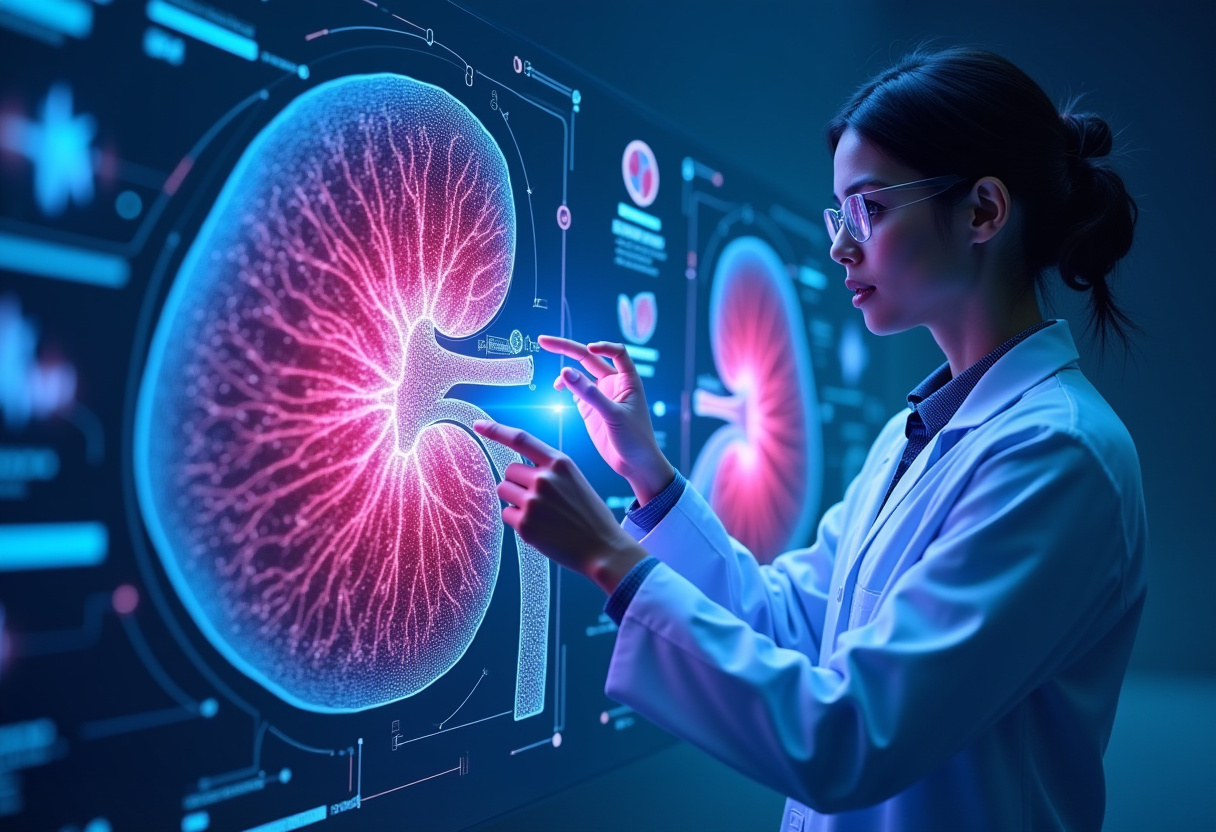
A recent study published in Scientific Reports introduces an innovative application of generative artificial intelligence (AI) in nephrology. Researchers have developed a deep learning model capable of generating synthetic kidney biopsy images that closely resemble real samples. This advancement holds significant promise for enhancing diagnostic accuracy and facilitating medical training in renal pathology.
How Generative AI Creates Synthetic Kidney Biopsy Images
The research team employed a Generative Adversarial Network (GAN) architecture, wherein two neural networks (the generator and the discriminator) are trained simultaneously. The generator creates synthetic images, while the discriminator evaluates their authenticity. Through iterative training on a dataset of kidney biopsy images, the generator learned to produce high-fidelity images that the discriminator could not distinguish from real ones.
Advancing AI Model Training and Medical Education
One of the notable achievements of this study is the model’s ability to generate images depicting various kidney diseases, including glomerulonephritis and diabetic nephropathy. This capability enables the creation of diverse image datasets, which are invaluable for training and validating other AI models in nephrology. Moreover, these synthetic images can serve as educational tools, providing medical professionals with a broader spectrum of visual examples to enhance their diagnostic skills.
The Future of AI in Renal Pathology
The integration of generative AI into nephrology marks a significant step forward in medical imaging and diagnostics. By augmenting the available data and offering new avenues for training and validation, this technology has the potential to improve patient outcomes and advance the field of renal pathology.